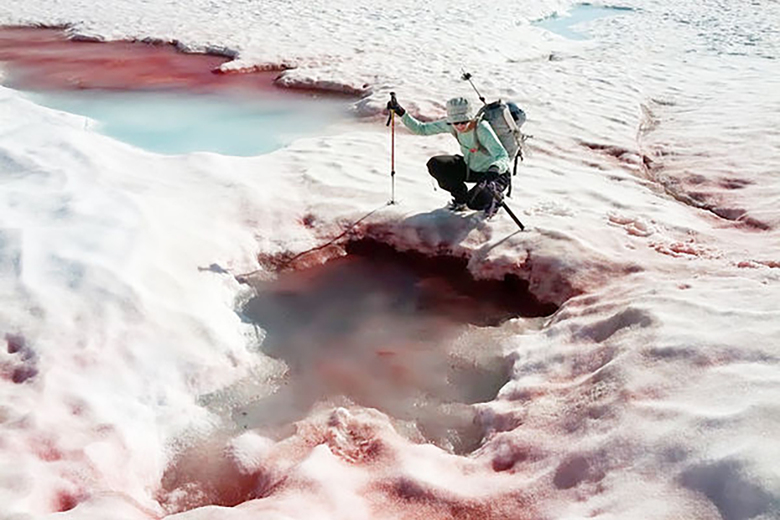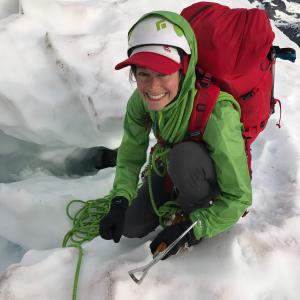The Living Snow Project: Adventure-Based Community Enabled Science
The Living Snow Project is a community enabled science (aka "citizen science") program that engages the outdoor recreation community in science that is revealing impacts of climate change on biology in snowy alpine environments. The primary goal of the LSP is to support scientific efforts in my lab at WWU, to characterize snow microbiome biodiversity and distribution across the Cascades and other regional mountains over time. We want to understand where snow algae bloom, how they disperse around the landscape, and how their communities evolve over time in response to climate-driven environmental changes. To do this, we need to collect robust sample datasets from as many locations as possible. And we need these samples over time to document communities from year to year. So far, LSP has processed samples from 2013-2018. It looks like we have some new “species” of snow algae in the PNW – the strains we see here are genetically distinct from samples sequenced from Europe, Greenland, Japan, and Antarctica. We also see that each community (the algae + bacteria, fungi, and other amoeba-like things) in a region are different. With more samples, we will be able to understand how random this variability is. We have also identified that snow algae communities in the Cascades form assemblages that are found in distinct environments across the region, and some of these assemblages live in low elevation snowy environments that are currently extremely threatened due to impending loss of habitat.
A secondary goal of the LSP is to learn how participation in citizen science can increase participants’ further engagement in conservation and facilitates conservation attitudes and behavior change.

About the Speaker

Dr. Robin Kodner is an Associate Professor of Biology at Western Washington University and has been at WWU since 2012. Robin started her research career studying algal evolution over geologic time and has since moved on to study how modern algal communities respond to climate change. Her passion for playing in both the mountains and the ocean has driven Robin to focus her research on field-based studies. She uses environmental-based genomic and bioinformatics methods that integrate evolution with analysis of community structure and phylogeography. Currently, her lab works on the snow microbiome from the Pacific Northwest as a model to study how these communities evolve in response to environmental change, as well as studying microbial communities in Bellingham Bay and their response to changing ocean conditions over seasons and years. Robin has also been an outdoor educator, in the mountains and on sailboats, using these environments as platforms for teaching basic sciences.
In addition to her biology research, Robin has been working on helping create equitable and inclusive spaces in Science. She and her colleagues Regina Barber DeGraaff and Lina Dahlberg co-created and co-facilitate the ISMs (Inclusion and Social Mindfulness in STEM) workshops. They are now dipping their toes into social science research to learn about the impacts of faculty development on individual and institutional change.
Environmental Speaker Series
The Environmental Speaker Series is hosted by the College of the Environment at Western Washington University.
The Series is free and open to the public. Talks are held each Thursday at 4:30 pm in Academic Instructional Center West room 204 - AW-204. Talks will also be streamed via zoom. Register with the Alumni Association for the zoom link. Paid parking is available in lot C.
Learn more about the Environmental Speaker Series
Subscribe to the Email List